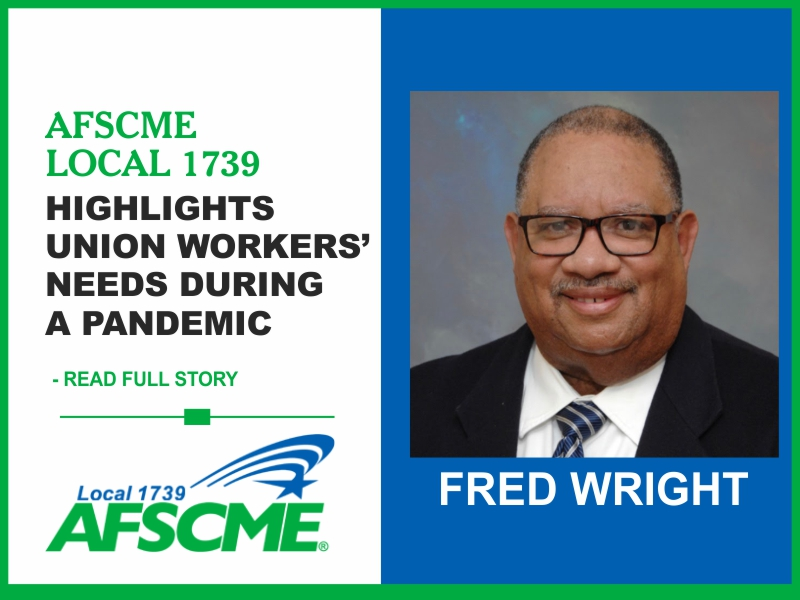American people with physical and emotional disabilities face issues of inaccessibility, prejudice, and ableism every day. A pandemic undeniably exacerbates their struggles, and as this demographic continues to fall at the back of the line, unions are stepping in to give a voice to the unheard. Fred Wright, President of the AFSCME Local 1739, continues representing the needs of workers whose vulnerabilities have heightened during a pandemic.
AFSCME Local 1739 is a union that represents employees who work in the Philadelphia Community and Social Service Agencies. With over 1500 union workers, Wright notes that 1/4th of the members work in communities that require hands-on activities. He describes COVID’s impact on the union and strategies employed to mitigate this change: “Since last year, 200 of our members tested positive for COVID-19. We had an employer track this progress, how many have contracted, and how many have been exposed. We had to fight for people to get protective equipment like masks, gloves, and things like that.”
In sharing the most pertinent issue for union members during COVID-19, Wright says: “Job security is an issue for workers. There is a high unemployment rate…The poor, disabled, and elderly are usually the first people to get cut. Some people were laid off.”
Wright shares that the disabled and elderly have been the most underserved during the pandemic. This highlights the need for organizations like Local 1739. He states: “Those individuals are the most vulnerable, and they can’t speak or advocate for themselves. We had to scramble to get masks, gloves, and protective equipment in places like community homes. Now with the vaccine, it’s the same.” Wright encourages communities to engage with healthcare providers to learn more about the COVID-19 vaccine, get approval, and register to get the vaccine.
Wright spearheaded initiatives designed to cushion workers during COVID-19, including negotiating with employers for adequate hazardous pay. His most memorable moment so far was getting the salaries for Direct Support Professionals (DSP’s) increased. Wright says “By the end of 2022, DSP’s will be starting at $15 an hour. When providers first developed DSP’s, the starting salary was at $7 the state minimum wage. During my term in office, I have doubled their minimum wage.”
COVID pushed Local 1739 to seek digital avenues of outreach. Currently, Local 1739 makes use of all versions of electronic media, including texting, virtual meetings and video chats. Because Wright does not see COVID-19 going away anytime soon, he says Local 1739 will continue utilizing digital communications to communicate its resources to the masses.
We thank Mr. Wright and the team at Local 1739 for the work they do. Additional member resources of Local 1739 include education and scholarship assistance, money and credit assistance, and a travel center. Visit their website at www.afscmelocal1739.org to learn more about their services.

Nana Ama Addo is a writer, multimedia strategist, film director, and storytelling artist. She graduated with a BA in Africana Studies from the College of Wooster, and has studied at the University of Ghana and Kwame Nkrumah University of Science and Technology. Visit her storytelling brand at www.asieduasimprint.blog, and connect with her creative agency on Instagram: @chitheagency.





